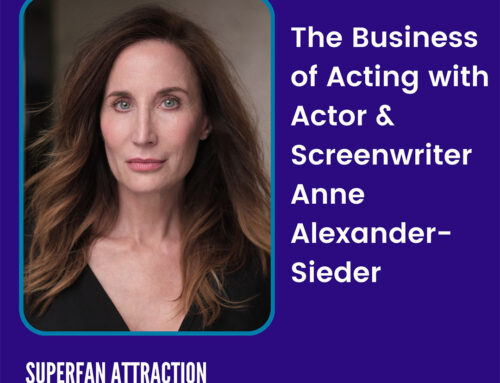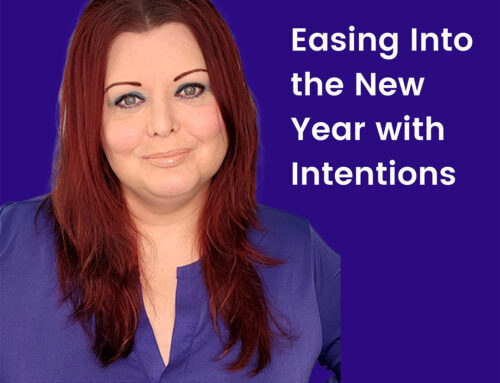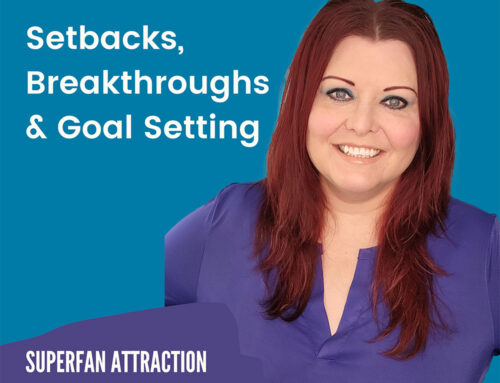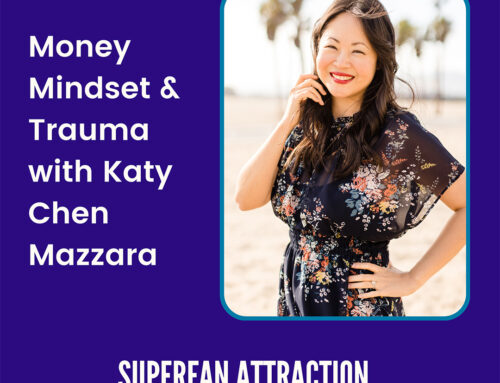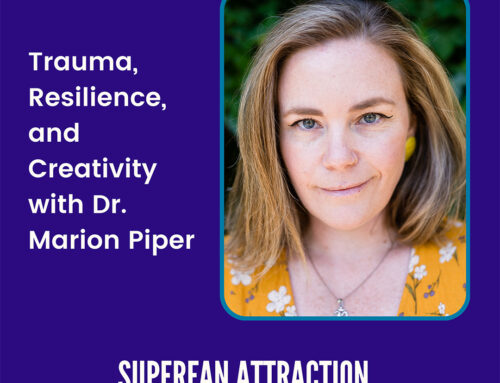Storytelling Prompts For Multi-Passionate Artists, Musicians, Actors
We all have a unique story — a story that is made up of our life experiences, the moments that have shaped us, and the decisions we have made. Telling your story is one of the most effective ways to authentically connect with an audience.
In this episode, I offer various questions to spark your memory of key moments in your life. Our story is full of the joys and successes of our lives, but also the failures, mistakes, and pain. It is a story that is both powerful and vulnerable.
Transcript:
Storytelling and telling your story. There’s many steps to telling your story. But one of the first ones is to start with a timeline of your life. Because we don’t often look back and try to collect our stories. But these days, we have to be telling stories all the time, right? And so a good place to start is your timeline. So today I’m going to walk you through… I’m just going to ask you a bunch of questions so that it gets you started thinking about the stories and highlights that you have experienced.
Let me just go back to think about the different areas of your life. It can pertain to your creativity and what you do, but it might not. But it’s all connected and you don’t want to only be talking about the one thing you do. You want to share stories of every aspect of your life so that that attracts super fans because people see you, people see themselves in your stories. So I encourage you to grab a notebook while you’re listening or listen to this back again another time when you are able to take notes and write down what comes to mind when you start with childhood.
[00:01:56.850]
Childhood, what events happened in your childhood that may have led you to what you do today? What was your first experience with art, music, film, theater, acting, painting? Was your family creative? What first drew you to the types of art that you do? Childhood. There are some performers artists that have been creating since they were a kid. And then others might have explored many different art forms and may still change their art forms today because we’re multif passionate. But think about your childhood. What were you in school plays? Were you dancing? Were you acting? Were you painting? What were you doing that was creative? Or maybe you came to it later in life, you weren’t doing anything.
Maybe your family was not creative at all and didn’t encourage the arts. Then how and when did that first enter your life? Teenage years. What significant events or experiences did you have in your teen years? Then think college. Teen years, again, that’s usually the time where adults and teachers and counselors tell you, you have to pick what you’re going to do for a living. What was your first inkling? Did you want to pursue the arts, but the adults force you or encourage you to do something more practical?
[00:04:04.130]
Those are stories that you could tell just on that. Were the people around you supportive of your art or did they discourage you? Either way, there are going to be people that can relate to your stories that you share about that. So what was your first professional gig? Did you pursue a higher education in what you do? Did you go to drama school, art school, photography school, music education, music school, music business? What first inspired you to pursue this as your career? So that is your timeline. I think also, was there a big aha moment that made you want to create? What do you think sets you apart from your peers? Who are your influences or what are your influences?
There’s some stories there. If there was a musician or an actor, an artist, or an experience that inspired you to want to do what they do, tell those stories. Who have you collaborated with? And what were those experiences? List your most impressive highlights of your career. I also do this for getting your facts down for your bio when you’re going to write a bio. You do need the highlights. What are the most impressive highlights of your career?
[00:06:04.590]
And ideally, make sure some are in the last year. But what have been the highlights of your career? If you’re a musician, have you opened for someone more famous? Have you worked with a well known producer? Have you charted at a single chart or appeared on television? If you’re an actor, what’s the biggest role that you’ve had, or have you gotten a chance to work with a known actor? What did you learn from them? And then it’s always important when you’re telling your story to share the vulnerability, so don’t just stick to the facts.
In your pursuit, what challenges have you had to overcome? What transformation have you experienced? What significant life experiences have impacted how you see the world, what you believe, what do you stand for? Seeing your life laid out on a timeline, it doesn’t appear to be pointing in a certain direction. My purpose, I don’t think I realized it until now in my journey. I thought when I started out as a photographer, it was because I wanted to be around performers and artists. I did love photography, but it wasn’t the driving force. It was my opportunity to be around artists and performers.
[00:07:48.890]
When I was a makeup artist, yes, I was in that fashion world doing fashion shows, but I was also doing music videos and photography shoots with actors and musicians and band shoots. And again, I was just trying to be around the performers. And it wasn’t that I really got that I had something unique to offer these artists and performers. I just wanted to be around them. Then I tried music journalism. It was like that, wasn’t it? Then obviously I want to be in the business. So I went to entertainment management school and became a publicist. And that was a little bit more in the business world of being an artist and performer. But I don’t think I really realized that my purpose has remained consistent throughout.
My purpose is to use my knowledge, experiences to help artists succeed. Now looking back, I’m like, Whoa, my purpose has been the same all along. When I was a photographer, I’ve always been coaching. I’ve always been helping and mentoring artists, whether I knew it or not. As a photographer, my photographs of them helped them promote themselves. It helped them figure out their image. Same with makeup and hair.
[00:09:30.210]
I helped a lot of artists and performers present themselves professionally, figure out what their image is. And then as I published this, I helped them figure out what’s unique about them and how to promote themselves, how to do interviews with the media. And now as a coach, all of that experience comes into play with what I do now. I’m so confident in my knowledge and experience. I have so much to offer because I was multif passionate and changed careers, but the constant theme throughout was helping other artists and performers succeed. So there’s more arts and entertainment in the world, which brings me back to artists have the power to heal, transform, and elevate lives.
So I believe that to my core, I’ve experienced it. It’s why I do what I do. And if I can use my knowledge and experience and coaching to help artists not quit and to continue and to be successful, that makes life worth living for me. It’s more helping other people, I think, to make that world impact than me doing it myself because… So back to your story. What other opportunities or accomplishments have you had that are meaningful or valuable?
[00:11:21.430]
I just told you one of my stories. I could just say, Hey, I am a personal branding coach for multif passionate artists. Okay, what on earth do you coach on? Or is it just personal branding for any creative? But by telling you my journey through photography, makeup, journalism, publicity, coaching, that journey tells you all the areas that I draw on when I’m coaching artists, and that’s what sets me apart. That’s what makes me different. And also the fact that I’m multi passionate. If you’re multi passionate too, then you probably had a connection to that to me because of that.
And so by sharing your story, people can connect to you and want to work with you. And that’s the thing about super fans. They become your super fan and they’re going to support you in whatever you do. So if you’re an artist, by telling your stories and people start to connect to your story, they’re going to check out your art. It’s just curiosity. It’s human. We make a connection. I want to know more. And then if I like your art on top of that, super fan. And that’s what I help artists achieve with telling their story.
[00:12:57.810]
Another thing with storytelling is to search for meaning. What elements of your story was the most life changing for you? What elements of your experience could be the most inspirational or helpful for others? What parts of your story gave you the passion to want to create in the first place? All of these things. And if you want to go further into this, this is what I coach on. But there’s also books. There’s books called…
Let me see. Show you my books. So there’s all kinds of journals. This one’s one question a day in my life so far, and this actually helps take you through your timeline. What made you cry as a kid? That’s a question. It helps to spark your memory. Who remembers all this stuff? I know some people have crazy good memories. I do not, or at least not for the past. And so sometimes a question like that, what made you cry as a kid? It might spark a memory that could lead to a good story that you would tell. Were you ever away from home for long stretches of time as a child? Describe how you dealt with that.
[00:14:36.520]
What’s the most exciting gift you received as a child? So books like that. And then it takes you through your high school years, your college years, your family life, your career. What does success mean to you? What was the first stamp on your passport, if any? What was the first stamp on my passport? I think Jamaica. Jamaica was my first out of the country or out of North America stamp on my passport. If you had to live in a different country, where would you live and why? So that’s a journal about your life.
And then there’s also books like this one’s 3,000 Questions About Me, and there’s 3,000 questions. What is your special song? I don’t know if I have a special song, but it would make me start thinking about what my favorite songs are and why. That’s the story. Do you need to write things down to remember them? I’m not a good note taker. I really should. What have you been accused of being irrational about? Me, never. I’m even tempered. Or no, I don’t think I’m ever irrational, though. I have logic behind my arguments, if I ever make some. What did you do for your 21st birthday?
[00:16:19.310]
I was probably in school, so I was studying. So fun, that was. What’s your favorite thing to eat for breakfast that is not considered breakfast? Pizza. Anyways, gives you an idea, these questions to start to collect your stories. And through my coaching with artists, I’ll help you structure your stories. I’ll help you pick out what’s important for a bio. What should you say in your one line bio for Instagram? And then how to create the story vault, like putting your stories into different categories. One might be an About Me category. Another might be all your behind the scenes stories. Another category could be your why, all the stories that demonstrate why you do what you do. Personal insight. There’s so many…
By having categories and collecting your stories, that’s just the first step. That way, you can start to shape your stories and figure out how to either tell the story on stage or in video or in conversation. And also for social media in the caption. I was even looking at different artists’ social media the other day, and I look and go, I can help you. It annoys me that people just post something random because they don’t know what to post and then they don’t tell me anything in the caption.
[00:18:11.020]
Artists, they’re posting, even if it’s all their art, tell me about it. And that’s what makes connection. So I help artists shape their stories and come up with a strategy of telling their stories. So that is all today. That is my story. I hope this inspired you to start collecting your stories and to give you ideas of what to share, what to connect with people on. And if you want more of this, I encourage you to download the free Superfan Attraction playbook. And it comes with a free training, a free mini training that guides you through the playbook, at least the personal branding stages of the playbook. I hope I inspired you to tell some of your stories. Till next time.
Be sure to sign up for the Free Superfan Attraction Playbook and Training at dianefoy.com/freebie
I’m @dianefoyarts on all socials and there is a Superfan Attraction Group on Facebook at dianefoy.com/facebook

